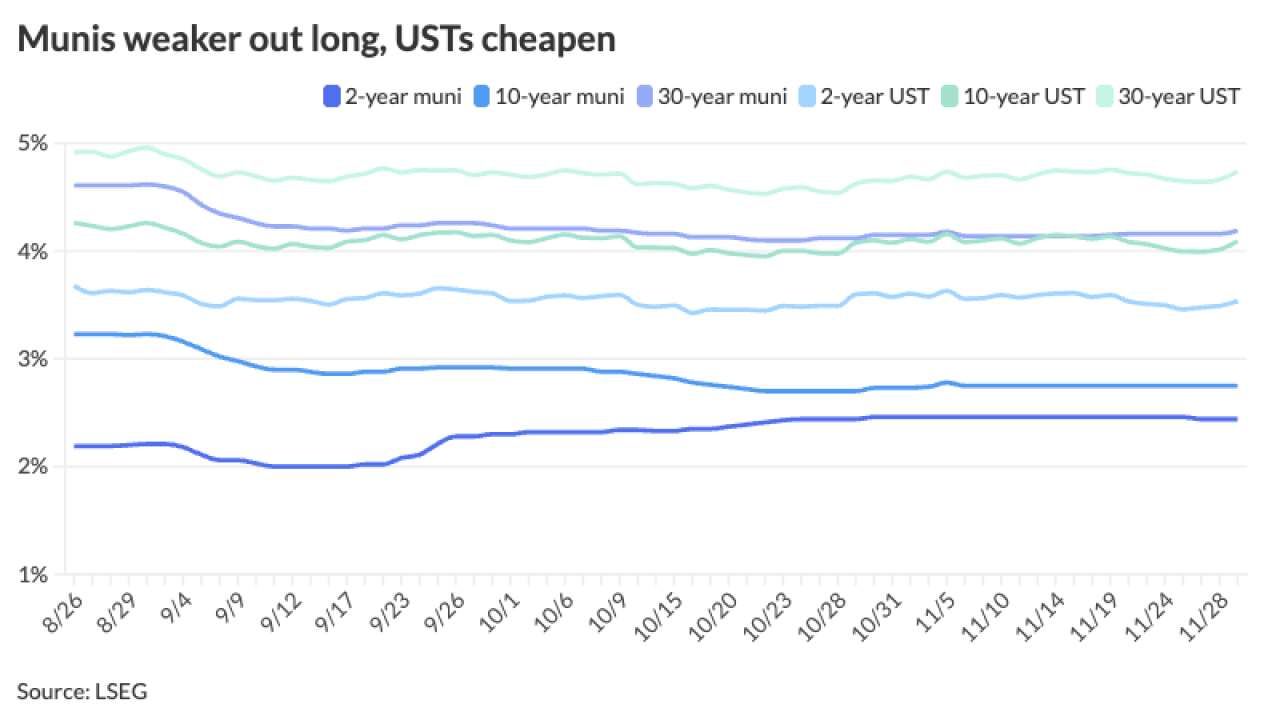In the wee hours Thursday morning, Connecticut Gov. Ned Lamont closed the General Assembly's five-month regular session.
“I hope it didn’t take too much of a toll on you," he said, pun intended. "Which reminds me, we have a little bit of unfinished business."

Lamont essentially told bleary-eyed lawmakers to catch up on their sleep. "I'll see you in a couple of weeks."
State lawmakers, having approved a $43.2 billion biennial budget that Lamont intends to sign, agreed on a special session to debate a bonding package related to school construction and other local projects.
They punted
While Democrats, who control both houses of the General Assembly, were united over the budget, they are split over tolls. Republicans solidly oppose them.
No one is eager to pay tolls or vote for them, but the governor, given Connecticut's long-term budget stress, sees no other source of the money needed to fix its crumbling transportation infrastructure. He cites a backlog of $800 million.
Lamont said many lawmakers, fearing political fallout in next year's elections, have asked him for a deferral. "We'll see if there's middle ground but I will not let people avoid a tough vote."
His working draft of a 24-page transportation bill calls for up to 50 tolling gantries on interstates 84, 91, 95 and parts of state Route 15. It would create a transportation commission that would set toll rates during peak and off-peak times and for different types of vehicles.
The Republican plan, which Senate Minority Leader Len Fasano of North Haven has championed, would reserve a set amount of general obligation bonds for transportation priorities, beginning with a commitment of $703.7 million in 2020.
The Democratic-controlled House and Senate days ago approved the budget, which closes a $3.7 billion deficit without raising the income tax, and boosts the state’s stabilization, or rainy-day fund, to a projected $2 billion.
The budget was on time. Two years ago it passed four months late.
“The establishment of a $2 billion budget reserve is a positive element in this budget,” said Alan Schankel, a managing director at Janney Capital Markets.
According to state Sen. John Fonfara, D-Hartford, the rainy-day account could swell by another $900 million over the two years should spending and revenue projections hold.
The budget plan includes an
“This moment was a long time coming,” Wooden said.
Schankel said Connecticut local governments will benefit from the state’s decision to forgo pushing some teacher pension costs downstream to cities and towns. “But the decision to reduce state contributions to pension plans during the biennium is negative.”
Republicans objected to the variety of hikes to many other taxes and fees. “It’s death by a thousand cuts,” said Sen. Kevin Witkos, R-Canton.
The plan imposes taxes on groceries, digital downloads, parking, plastic bags and dry cleaning, among other items.
A special session on tolls makes sense, according to James Spiotto, a managing director at Chapman Strategic Advisors in Chicago.
“It would be a smart move to do a special session if you haven’t done it already,” he said.
More infrastructure-related special sessions could be in the works, Spiotto said, given $4.6 trillion in projected state-of-good-repair infrastructure needs nationally through 2018 and 2025, and continued gridlock at the federal level.
Varying needs prompt states hold these sessions, according to data from the National Conference of State Legislatures.
Earlier this year in Alabama, lawmakers passed three infrastructure-related bills Gov. Kay Ivey had backed.
They increased the gas tax, created a Joint Legislative Transportation Committee and authorized the Alabama Highway Finance Corp. to issue $150 million in bonds for the state’s share of enlarging the Mobile Ship Channel to serve larger cargo vessels traveling through the Panama Canal.
Alaska and Minnesota convened special sessions regarding their state budgets. Minnesota’s lasted two days, ending late last month. West Virginia’s, which began March 10, is focusing on the public education system and employee compensation.
In Virginia, Gov. Ralph Northam on Tuesday called for an emergency session to act on gun control after a mass shooting at a government building in Virginia Beach killed 12 people.
In Mississippi last year, a special session Gov. Phil Bryant convened to discuss the BP oil spillage settlement resulted in the creation of a state lottery whose receipts will fund up to $80 million annually for the first 10 years for road and bridge repair, or any federal infrastructure funding.

Mississippi in January issued $279 million in gaming tax revenue bonds to fund an emergency statewide replacement program. About $50 million of the proceeds went to the state’s 2018 transportation and infrastructure fund.
Bryant earlier in 2018 declared a state of emergency, ordering the immediate closing of 83 locally owned bridges that federal and state officials deemed deficient.
Other states are looking to tolling as revenue options amid strained budgets, less reliability on the gas tax and federal uncertainty.
Oregon, taking a cue from neighboring Washington state, is looking to toll interstates 5 and 205 and link it to congestion pricing. And Colorado’s Department of Transportation is planning to add a tolled express lane on I-25 near Fort Collins.
“You’ll see more and more of this,” Schankel said. “It’s a growing trend. The gas tax is an increasingly poor way to pay for highway infrastructure.”
Tolling has long been a political third rail within Connecticut.
“Gov. Lamont is talking about some really tough things like putting tolls on highways, which is never going to be popular locally,” said
“People have to pay on highways in Massachusetts, in New York, in New Jersey and in Pennsylvania. In Connecticut, they get a free pass and a lot of them are out-of-staters. And the state doesn’t have any money to meet its transportation infrastructure needs.”
Two 1983 disasters have long shaped tolling and infrastructure debate within Connecticut.
A January crash at the Stratford toll gate that year killed seven persons was the flashpoint for the elimination of tolls several years later. That June, a portion of the Mianus River Bridge collapsed in Greenwich, killing three, opening a gaping hole on Interstate 95, closing that artery of Northeast travel and commerce for months.
Tolling supporters point to today's electronic-collection mechanisms, by contrast to the toll gates of yesteryear.
Connecticut’s wobbly economy and the shaky status of its transportation fund fuel the debate. All four bond-rating agencies downgraded the state in 2017, although S&P Global Ratings in March revised its outlook on the state’s general obligation bonds to positive from stable on its A rating.
Moody’s Investors Service rates Connecticut GOs A1, while Fitch Ratings rates them A-plus. Kroll Bond Ratings Agency assigns its AA-minus rating. Kroll assigns a negative outlook, while outlooks from Moody's and Fitch are stable.
Connecticut’s total fixed costs account for 28% of its general fund expenditures, according to Hartford-based Conning, which ranked the state 46th in credit quality in its State of the States
The state's spread to 10-year maturity on the Municipal Market Data scale was 44 basis points — narrowing, but still third worst nationwide, right behind New Jersey, at 46 bp though far behind Illinois at 138.
According to the American Society for Civil Engineers, congestion alone is costing Connecticut $2.4 billion annually, with $30 billion in fixes needed for its 20,000 miles of public roads.
“Delays in moving goods and services through any community results in economic problems,” Spiotto said. After a while, repairs are no longer maintenance. They become a complete re-do.”





